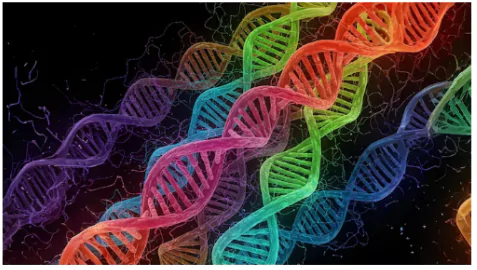Google DeepMind has launched AlphaGenome, a powerful AI model designed to predict how genetic mutations impact our health and may even potentially provide new treatments.
- DeepMind CEO Demis Hassabis recently won the Nobel Prize in Chemistry for work related to genetics and DNA.
What is Human Genome ?

- The genome is our cellular instruction manual — the complete set of DNA that guides nearly every part of a living organism, from appearance and function to growth and reproduction.
- Small variations in DNA sequences can alter an organism’s response to its environment or susceptibility to disease.
Decoding how the genome’s instructions are read at the molecular level — especially the effect of tiny DNA variations — remains one of biology’s greatest mysteries.
What Is AlphaGenome?
- AlphaGenome is a new AI model from Google DeepMind that can accurately predict the effects of genetic mutations on DNA regulatory function.
- It is designed to provide a deep understanding of genome mechanisms, including the non-coding regions that don’t produce proteins but are crucial for gene regulation.
- It builds on previous models like Enformer and complements AlphaMissense, which analyzes protein-coding variants.
How AlphaGenome Works ?
- The model takes in long DNA sequences — up to 1 million base pairs — and predicts thousands of molecular properties that describe regulatory activity.
- It compares predictions of mutated sequences with unmutated ones to score the effects of genetic variants or mutations.
- Predicted features include:
- Where genes start and end in different tissues and cell types.
- Where genes are spliced.
- Amount of RNA being produced.
- Which DNA bases are accessible, in proximity, or bound by specific proteins.
Applications of the tool
- Disease Understanding:Helps pinpoint potential causes of disease by predicting the functional impact of genetic disruptions.
- Synthetic Biology: Can guide the design of synthetic DNA with custom regulatory functions.
- Fundamental Research: Aids in mapping essential DNA instructions for different cell types.
Limitations
- Limited Long-Range Interaction Modeling: AlphaGenome, like similar models, struggles to fully capture effects from distant regulatory elements over 100,000 base pairs away.
- Cell- and Tissue-Specific Precision: Enhancing the model’s accuracy in reflecting cell- and tissue-specific patterns remains a key area for improvement.
- Not Designed for Personal Genomes: The model isn’t designed or validated for individual genome interpretation, focusing instead on analyzing specific genetic variants.
- Incomplete Trait and Disease Insight: Predicts molecular effects but doesn’t account for complex biological and environmental factors involved in traits or diseases.
![]() 28 Jun 2025
28 Jun 2025


